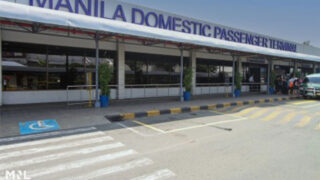Karma, our neighbors in Malaysia must have realized by now, bites when one least expects it. The situation a full day after the massive military offensive that Malaysian security forces launched early yesterday against a few hundred followers of Sultan Jamalul Kiram III encamped in Lahad Datu in Sabah remains murky. But the official word from Kuala Lumpur is that the followers had disappeared into the surrounding areas.
There’s one important reason why that may be so, and a statement from a leader of the Moro National Liberation Front gives us a clue. If we can see past the understandable bravado of Muhajab Hashim, we can glimpse the underlying truth.
“Many [ex-MNLF fighters] have slipped through the security forces,” he told Agence France-Presse. “They know the area like the back of their hands because they trained there in the past.”
He is referring to the claim, still unproven at press time, that former fighters of the MNLF, the rebel movement that entered into a peace agreement with the Philippine government in 1996, had sailed into Sabah to join Kiram’s followers. If they did manage to evade both the Philippine and Malaysian navies and to slip into northern Borneo, it must be because Sabah is not only the so-called southern back door but also the exit point encouraged at worst and tolerated at best by the Malaysian government.
In other words, because Kuala Lumpur did allow MNLF rebels to train in Sabah all those many years ago (or determinedly looked the other way), it is now grappling with a ghost: the prospect of armed men hiding in the Sabah countryside that they call both ancient homeland and old training ground.
To be sure, Kualu Lumpur had closed the back door, or at least oiled the rusted hinges, by the time MNLF founder Nur Misuari staged a second rebellion after a failed stint as governor of the Autonomous Region in Muslim Mindanao. Misuari fled to his usual haunts, only to be pursued and arrested by the Malaysian police and deported to the Philippines. By then, Malaysia had decided that it was in its best interests to support the peace negotiations between the Philippine government and the Moro Islamic Liberation Front. To be completely fair, we recognize that after Kuala Lumpur switched gears, it backed the peace process to the hilt. Karma, however, seems to follow its own schedule.
We do not make light of the situation in Lahad Datu and surroundings; the consequences of the misadventure, of the maladroit handling by the Aquino administration of a crisis-in-slow-motion, above all of the massive military operation launched by Kuala Lumpur, will be felt for a long time to come. But consequences, inevitable or otherwise, may be simply another name for history.
The massive air-ground offensive itself was probably a consequence of political calculations regarding the coming election in Malaysia; both the government and the opposition (led by Anwar Ibrahim, so-called friend of Filipinos and self-proclaimed admirer of Jose Rizal) have tried to outdo each other in striking nationalist postures and calling for the most aggressive action possible. The result: military aircraft dropping bombs on a band of men (and women) armed only with handguns and rifles. In other words, the politics of a close vote may have forced Kuala Lumpur’s hand. The display of military power may have been made, then, to shock and awe not the Sultan’s “intruders,” but Malaysians soon to head to the voting booths.


